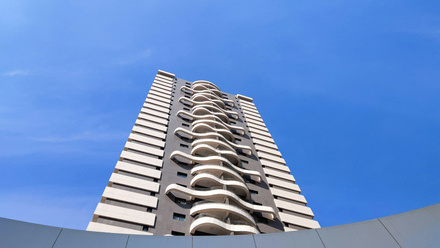New regulator at heart of building safety overhaul
The Building Safety Bill, published this week, will create lasting generational change and set out a clear pathway for the future on how residential buildings should be constructed and maintained, said the Government.
Housing Secretary Robert Jenrick will outline the next key step in an extensive overhaul to building safety legislation, giving residents more power to hold builders and developers to account and toughening sanctions against those who threaten their safety.
The Building Safety Regulator will oversee the new regime and will be responsible for ensuring that any building safety risks in new and existing high rise residential buildings of 18m and above are effectively managed and resolved, taking cost into account.
This will include implementing specific gateway points at design, construction and completion phases to ensure that safety is considered at each and every stage of a building’s construction, and safety risks are considered at the earliest stage of the planning process.
These changes will simplify the existing system to ensure high standards are continuously met, with a ‘golden thread’ of information created, stored and updated throughout the building’s lifecycle, establishing clear obligations on owners and enabling swift action to be taken by the regulator, wherever necessary.
The reforms will tackle bad practice head on, building on Dame Judith Hackitt’s review of Building Regulations and Fire Safety, which highlighted a need for significant cultural and regulatory change.
Under the proposals, the government is more than doubling the amount of time, from 6 to 15 years, that residents can seek compensation for substandard construction work.
The changes will apply retrospectively. This means that residents of a building completed in 2010 would be able to bring proceedings against the developer until 2025.
These reforms also include new measures which apply to those seeking compensation for shoddy refurbishments which make the home unliveable.
New measures in the Building Safety Bill introduced will:
- Ensure there are clearly identified people responsible for safety during the design, build and occupation of a high-rise residential building.
- Establish a Building Safety Regulator to hold to account those who break the rules and are not properly managing building safety risks, including taking enforcement action where needed.
- Give residents in these buildings more routes to raise concerns about safety, and mechanisms to ensure their concerns will be heard and taken seriously.
- Extend rights to compensation for substandard workmanship and unacceptable defects.
- Drive the culture change needed across the industry to enable the design and construction of high-quality, safe homes in the years to come.
The Bill will include powers to strengthen the regulatory framework for construction products, underpinned by a market surveillance and enforcement regime led nationally by the Office for Product Safety and Standards (OPSS).
The national regulator will be able to remove products from the market that present safety risks and prosecute or use civil penalties against any business that breaks the rules and compromises public safety.
The Bill also contains measures to protect leaseholders by providing a legal requirement for building owners to explore alternative ways to meet remediation costs before passing these onto leaseholders, along with evidence that this has been done.
This builds on the government’s commitment to fully fund the cost of replacing unsafe cladding for all leaseholders in residential buildings 18 metres and over in England, with an unprecedented £5 billion investment in building safety. This is alongside the introduction of a new levy and a tax to ensure that industry pays its fair share towards the costs of cladding remediation.
Developers will also be required to join and remain members of the New Homes Ombudsman scheme, which will require them to provide redress to a homebuyer, including through the awarding of compensation. Developers who breach the requirement to belong to the New Homes Ombudsman may receive additional sanctions.
Francesca Berriman MBE, Chief Executive, CIAT, commented: "As one of the key contributors to the work leading to a new building safety regime, we are pleased that the Building Safety Bill has now begun its progress through Parliament. We will maintain our active engagement with Government, the HSE as the new Regulator and BSi which is development the standards over the coming months in preparation to the new regime.
There is still much work to be done, together with the secondary legislation providing more of the detail. A real focus is needed to drive this forward, to support all stakeholders, to rebuild confidence in the industry and ensure that a tragedy like Grenfell can never happen again. CIAT is in the process of reviewing its structures, and procedures to validate members being fit for function through knowledge, skills, and experience ,within an ethical framework and ensure that where they operate within an industry, they have both qualifications and competences that they will be required to practise.
The Bill is now on its second reading and CIAT will be reviewing other implications in order to make any assessments as to the reasonableness of the proposals.”





